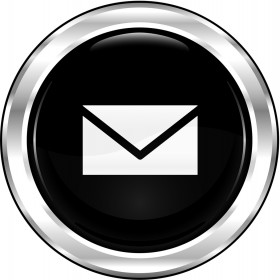The boss asks you what happened to the email from Client A who says they are still waiting for a reply. Panic sets in because you know you saw the email but now it’s lost somewhere in your bulging inbox. It has happened to most of us at some point in our digital lives.
The challenge is to reduce the risk of it happening too often. With the pressure of year end over and with spring in the air, now is a great time to reduce email overload stress by dusting down your inbox. There are some who profess to being able to work effectively in chaos but for most of us having some order in our lives helps improve performance. A clean inbox makes a great foundation to bring order to your inbox and limit the risk of an email disaster by missing an important email.
For each new email which pops into your inbox (often uninvited), your aim to is ensure it is handled once and once only. That is to say, you apply one of the four Ds and if the option is ‘Defer’ ensure you have a fail safe process for keeping track on when you will action it. Your inbox should be ‘work in hand’. Yet over the last month I have heard tales of people with 1,000+ emails lingering in the inbox. Little wonder some emails go unread and unanswered.
For those who want to do a really deep inbox clean up you can follow the Clean Inbox Week programme. For those who want the quick flick of the duster approach here are seven easy steps.

Clean inbox – a quick dusting
Now with a relatively empty inbox apply the 4Ds to each new email as it arrives and implement a process for you that will help you keep track of the emails which have outstanding actions.
If you feel you and your colleagues would benefit from more better email management, please do contact us about Mesmo Consultancy’s Brilliant Email Masterclasses. Over the last month we have helped many clients save 45 minutes plus per day dealing with their email.
Tags: 4Ds, Brilliant Email Masterclass, Clean Inbox, email manamagement training, email overload, email stress, Mesmo Consultancy
More practical tips and hints on how to reach inbox zero. Taken from Clean Out Your Inbox week, but will help everyone doing some inbox spring cleaning. Interview with Alan Coote on ‘Let’s Talk Business’
Tags: clean out your inbox week, inbox zero
Protecting patient data is paramount in health care, be it either private or public sector. Email is one of the easiest ways to breach security quite by accident. This article reviews the common sources of leaking confidential date through email and steps to reduce the risks. Select: insight and intelligence from the Private Healthcare UK
Over the past month there have been several articles relating to email overload and email best practice which I thought worth sharing, including one from my personal blog on HuffingtonPost.co.uk.
Quite email etiquette to gain attention. My top tips on email etiquette to gain recipient’s attention without shouting at them.
How to cope with email overload. The average business person spends nearly a third of their time dealing with email. Rhymer Rigby looks at ways to reduce emails overload drawing on expert opinions including myself.
How to ditch a laptop for an ipad. Good article which provides the pros and cons of making the switch and acknowledges it doesn’t work for everyone.
The 4 phases of a cyber attack: an infographic. It is a download and makes brilliant graphic. It should be on every office wall. It is a salient reminder that users are still one of the weakest links in the security chain.
Manage your work, manage your life. Establish your goals in life and what counts as success for you rather than being driven by other people’s goals and criteria. It can be hard. A good complementary book is Status Anxiety by Alain de Botton.
PST Management: the eliminate or migrate imperative. We all know PST files are a security risk and unstable yet we keep using them. This paper provides an outline of how to migrate away from this approach to storing emails to a more stable environment.
Tags: email overload
Do you need to see each and every new email as it arrives? Do all emails carry the same value and importance for you and how you perform your job? No. That is judging by the responses from over 200 delegates on various workshops Mesmo Consultancy has run over the past few weeks. Less than 3% of participants confessed that there really would be a problem if they did not see an email within twenty minutes of its arrival in their inbox.
Bearing in mind your inbox is a picture of you and the role you perform, there are obviously some of you who are more at the sharp end than others. However, interestingly when pressed about who are these impatient and badly behaved senders, all bar one or two delegates confessed that it was an internal senior manager and not a customer/client who had such short email response time frames.
more at the sharp end than others. However, interestingly when pressed about who are these impatient and badly behaved senders, all bar one or two delegates confessed that it was an internal senior manager and not a customer/client who had such short email response time frames.
It would seem that by and large customers/clients actually do have a slightly longer fuse than we anticipate. They expect to wait an hour or two for a reply. They acknowledge that if it’s urgent a phone call might be better and that you as the recipient might not be at your inbox the minute they send their email.
So why do so many people let their days and life be dominated by the arrival of a new email – in some cases dropping an urgent task in favour of a new email? Some possible explanations are:
For those concerned that email addiction might be the cause, you can check yourself out using Mesmo Consultancy’s free email addiction benchmarking tool – click here to start.
For others here are our tip five tips to help you focus and stop being driven by email.
Tags: email addiction, email distractions, email response times, Mesmo Consultancy, Out of Office